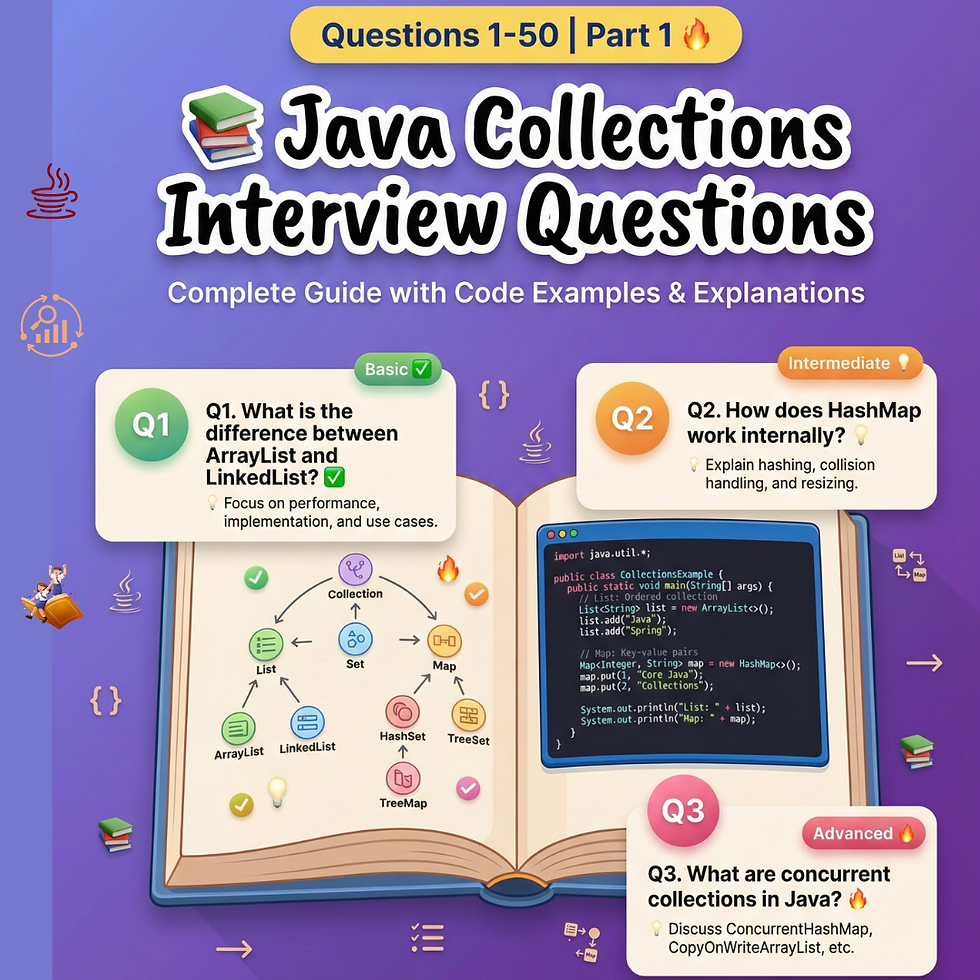Getting Started with the Fundamentals of Java Programming
- Sahadev Bite
- Oct 27, 2025
- 3 min read
Java programming is one of the most popular and versatile programming languages in the world. It powers everything from mobile apps to large-scale enterprise systems. If you are new to coding or want to expand your skills, understanding the fundamentals of Java programming is a great place to start. This guide will walk you through the essential concepts, practical examples, and tips to help you build a strong foundation in Java.
Understanding Java Programming Basics
Java is an object-oriented programming language designed to be platform-independent. This means that Java code can run on any device that has a Java Virtual Machine (JVM). The language is known for its simplicity, readability, and robustness.
Key Features of Java
Platform Independence: Write once, run anywhere.
Object-Oriented: Everything in Java is treated as an object.
Strongly Typed: Variables must be declared with a data type.
Automatic Memory Management: Java handles memory allocation and garbage collection.
Rich Standard Library: Provides many built-in classes and methods.
Setting Up Your Java Environment
Before you start coding, you need to set up your development environment:
Install the Java Development Kit (JDK): This includes the compiler and runtime.
Choose an Integrated Development Environment (IDE): Popular options include IntelliJ IDEA, Eclipse, and NetBeans.
Write Your First Program: Create a simple "Hello, World!" program to test your setup.
```java
public class HelloWorld {
public static void main(String[] args) {
System.out.println("Hello, World!");
}
}
```
This program prints "Hello, World!" to the console, demonstrating the basic structure of a Java application.

Core Concepts in Java Programming
To become proficient in Java, you need to understand its core concepts. These include variables, data types, control structures, and object-oriented principles.
Variables and Data Types
Variables store data that your program can manipulate. Java has several data types:
Primitive Types: `int`, `double`, `char`, `boolean`, etc.
Reference Types: Objects and arrays.
Example:
```java
int age = 25;
double price = 19.99;
char grade = 'A';
boolean isJavaFun = true;
```
Control Structures
Control structures allow you to control the flow of your program:
Conditional Statements: `if`, `else if`, `else`, `switch`
Loops: `for`, `while`, `do-while`
Example:
```java
for (int i = 0; i < 5; i++) {
System.out.println("Iteration " + i);
}
```
Object-Oriented Programming (OOP) Principles
Java is built on OOP concepts:
Classes and Objects: Blueprint and instances.
Encapsulation: Hiding data using access modifiers.
Inheritance: Creating new classes from existing ones.
Polymorphism: Methods behaving differently based on the object.
Example of a simple class:
```java
public class Car {
private String model;
private int year;
public Car(String model, int year) {
this.model = model;
this.year = year;
}
public void displayInfo() {
System.out.println("Model: " + model + ", Year: " + year);
}
}
```
Practical Steps to Start Coding in Java
Getting hands-on experience is crucial. Here are actionable steps to begin coding effectively:
Follow a Structured Java Tutorial: Use a reliable java tutorial to guide your learning.
Practice Writing Small Programs: Start with simple tasks like calculators, converters, or basic games.
Understand Error Messages: Learn to read and fix compilation and runtime errors.
Use Debugging Tools: Most IDEs have built-in debuggers to step through your code.
Explore Java Libraries: Familiarize yourself with commonly used libraries like `java.util` and `java.io`.

Tips for Mastering Java Programming Fundamentals
Mastering Java requires consistent practice and the right approach. Here are some tips to help you:
Write Code Daily: Even 30 minutes a day can improve your skills.
Read Java Documentation: Official docs provide detailed explanations and examples.
Join Coding Communities: Forums like Stack Overflow and GitHub offer support and collaboration.
Work on Projects: Build real-world applications to apply what you learn.
Review and Refactor Code: Improve your code quality by revisiting and optimizing it.
Exploring Advanced Java Concepts
Once you are comfortable with the basics, you can explore more advanced topics:
Exception Handling: Managing errors gracefully using `try-catch` blocks.
Collections Framework: Using lists, sets, maps, and queues.
Multithreading: Running multiple threads for concurrent execution.
Java Streams API: Processing collections in a functional style.
File I/O: Reading and writing files.
These topics will deepen your understanding and prepare you for complex programming challenges.
Continuing Your Java Programming Journey
Learning Java is a continuous process. Keep exploring new features, frameworks, and tools. Stay updated with the latest Java versions and best practices. Remember, the key to success is persistence and curiosity.
By mastering the fundamentals of Java programming, you open doors to numerous career opportunities and exciting projects. Start coding today and enjoy the journey of becoming a skilled Java developer!



























Comments